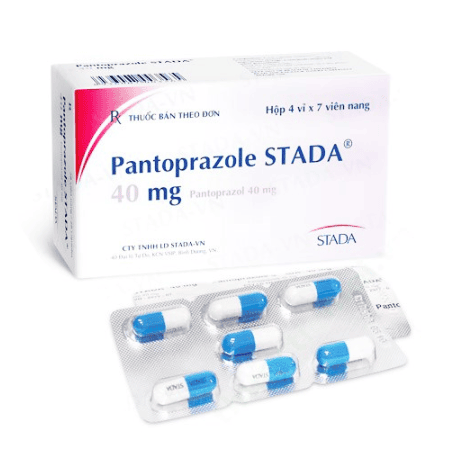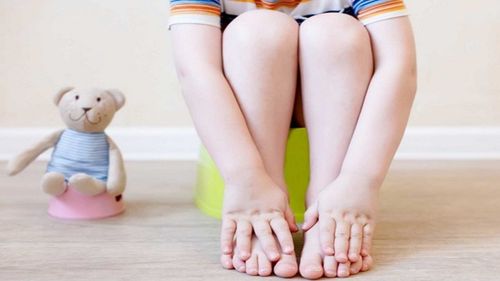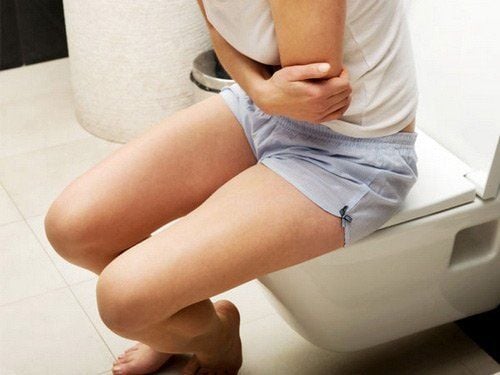This is an automatically translated article.
Posted by Master, Doctor Mai Vien Phuong - Department of Examination & Internal Medicine - Vinmec Central Park International General Hospital
Constipation is one of the common chronic digestive disorders in adults. In the United States, more than 2.5 million people visit a doctor each year for constipation. Every year, Americans spend nearly $800 million on laxatives to treat constipation.
4. Other diseases
In some cases, symptoms of constipation can be a sign of a more serious problem. For example, problems with your brain or nervous system can affect the nerves that cause the muscles in your intestines to contract and move stool.
Also, something blocking your intestinal tract, such as a tumor, can also lead to constipation. In most of these conditions, constipation is usually not the only symptom. Other conditions that can cause constipation include:
Hypercalcemia or too much calcium in your blood Multiple sclerosis, a condition that affects your nervous system Parkinson's disease, a condition in which part of the brain your damage is gradual Intestinal obstruction Bowel cancer Spinal cord injury Stroke Pregnancy Constipation is common during pregnancy. At least two-fifths of women experience constipation during pregnancy. This is because the body produces more of the hormone progesterone, which makes it harder for the intestinal muscles to contract.
If you are pregnant, ask your doctor about safe ways to treat constipation that won't harm your unborn baby.

5. Constipation due to medicine
Your constipation may actually not be due to your medical condition but to the medications used to treat the condition. The following medications are known to cause constipation:
Opiate pain relievers, such as codeine and morphine Calcium channel blockers for high blood pressure and heart disease Anticholinergics used to treat muscle spasms Medicines to treat epilepsy Tricyclic antidepressants Medicines used to treat Parkinson's disease Diuretics, used to help your kidneys remove fluid from your blood Antacids for the stomach, especially medicines antacids are high in calcium Calcium supplements Iron supplements to treat anemia Antidiarrheal drugs If you notice a change in the frequency or quality of your bowel movements after starting any of these medicines, Please address your concerns with your doctor.
They may want to adjust your medication, switch you to a new medication, or prescribe you an additional medication to control your symptoms of constipation.
Next step
If diet and lifestyle changes don't solve your bowel problems, see your doctor for more diagnostic tests.
Take a moment to think about any other symptoms your doctor may want to know about, such as fatigue, thinning hair, or a change in your weight. Ask your doctor if any of your medications may alter your bowel movements.
While chronic constipation doesn't always mean you have another underlying condition, your doctor will want to do some diagnostic tests to be sure.
If you are diagnosed with another medical problem, don't worry. Your doctor will come up with a treatment plan for you as soon as possible.
If you've been feeling depressed or anxious lately and think it might be affecting your digestion, make an appointment with a therapist.

6. How to treat and prevent constipation
Changing your diet and increasing your level of physical activity are the easiest and fastest ways to treat and prevent constipation. Try these techniques:
Every day, drink 1/2 to 2 liters of sugar-free, caffeine-free liquids, like water, to hydrate your body.
Limit drinking alcohol and caffeinated beverages that cause dehydration.
Add foods rich in fiber to your diet, such as raw fruits and vegetables, whole grains, beans, prunes or whole grains. Your daily fiber intake should be between 20 and 35 grams.
Cut down on low-fiber foods, such as meat, dairy, cheese and processed foods.
Aim for about 150 minutes of moderate exercise per week, with a goal of 30 minutes per day at least five times per week. Try walking, swimming, or biking.
Your doctor may also advise you to stop taking certain medications that can cause constipation.
More serious colon or rectal problems may require manual procedures to clear the colon of impacted stool, therapy to retrain slow muscles, or surgery to remove portion of the bowel. old has a problem.
Currently, Vinmec Times City International General Hospital is applying a method of treating cases of constipation due to a decrease or loss of defecation reflex by electric stimulation of the anus combined with interference waves, biofeedback training. (Biofeedback). The above method has helped >80% of patients to recover the defecation reflex, improve bowel motility and bowel movement, and improve constipation.
Please dial HOTLINE for more information or register for an appointment HERE. Download MyVinmec app to make appointments faster and to manage your bookings easily.
ReferenceDiabetes. (2016, July 12) nhs.uk/Conditions/Diabetes/Pages/Diabetes.aspx Irritable bowel syndrome. (2014, September 25) nhs.uk/Conditions/Irritable-bowel-syndrome/Pages/Introduction.aspx Generalized anxiety disorder (GAD): Symptoms. (2016, April) adaa.org/understanding-anxiety/generalized-anxiety-disorder-gad/symptoms Mayo Clinic Staff. (2018). Hypothyroidism (underactive thyroid): Overview mayoclinic.org/diseases-conditions/hypothyroidism/home/ovc-20155291 Mayo Clinic Staff. (2017). Generalized anxiety disorder: Symptoms mayoclinic.org/diseases-conditions/generalized-anxiety-disorder/basics/symptoms/con-20024562 Mayo Clinic Staff. (2016, April 21). Diabetes symptoms: When diabetes symptoms are a concern mayoclinic.org/diseases-conditions/diabetes/in-depth/diabetes-symptoms/art-20044248














